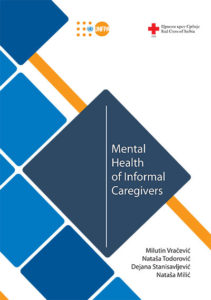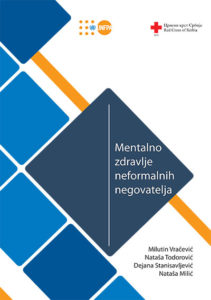An estimated 349 million people worldwide, are in need of care and among them 18 million (5%) are children under 15 years of age and 101 million (29%) are persons over 60.
Millions of “invisible” people provide care to their family members or close persons that need it. Health, quality of life and, in many cases, the very lives of functionally dependent people are largely influenced by the involvement of informal caregivers. In the context of population ageing, changes in family structures and increased life expectancy, there is a growing need for care, which makes the contribution of informal caregivers vital for the sustainability of the social protection and healthcare, long-term care, economy and wellbeing of the people in need.
Caregivers, most often family members, have an important role in providing support to children and adults with disabilities, older persons in need of care, or persons suffering from chronic noncommunicable diseases or serious illnesses. Despite the high price they often pay in terms of their own health and economic status, they remain in the blind spot of policy analyses.
To highlight this, the Red Cross of Serbia has published Mental health of informal caregivers based on research done in Serbia. The main goal was to look at the impact and effects of informal care especially during the COVID-19 epidemic on mental health of caregivers and to develop recommendations for planning and development of public policies to improve their quality of life, promote the improvement of their mental health and develop support services. The age of the surveyed informal caregivers ranged from 18 for the youngest participant, to 92 for the eldest. The largest number of the polled informal caregivers provide care to one person (84.9%), 12.6% provide care to two persons, and 2.6% provide care to three or more people.


